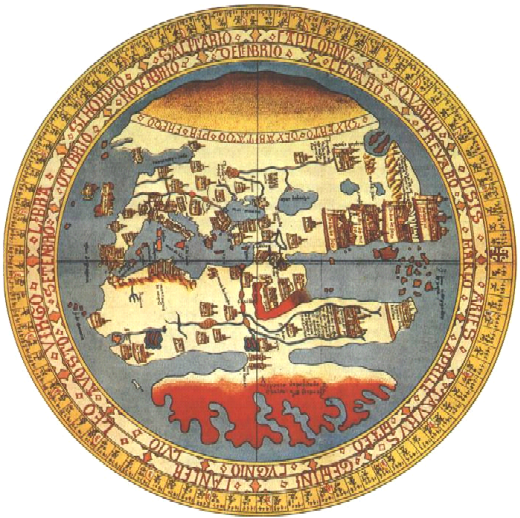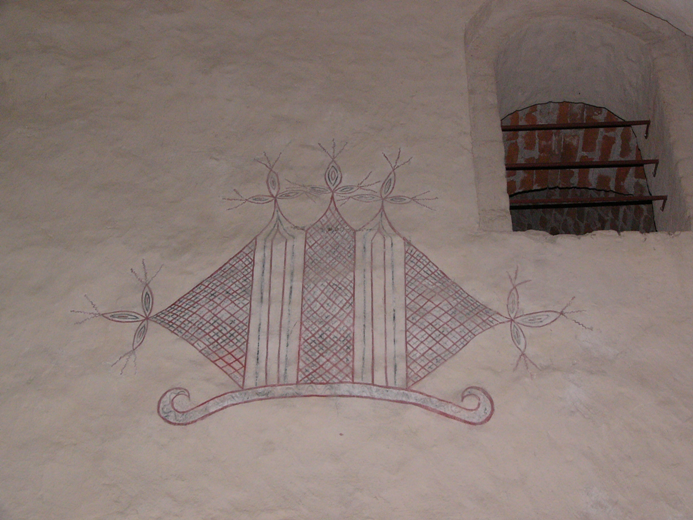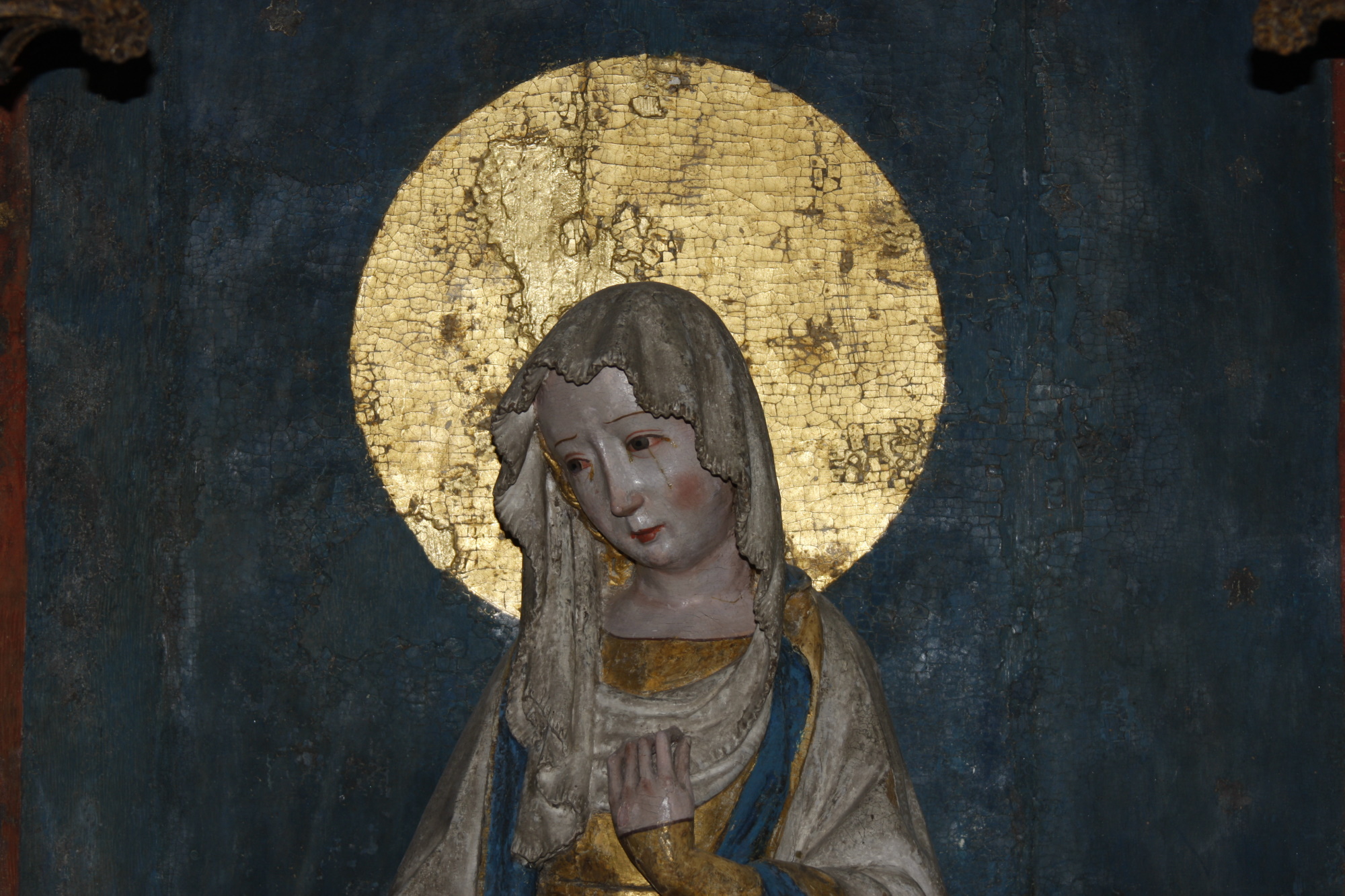The physician and writer, Peter Nilsson, suggests that the medieval world view that applied in abbeys, is a philosophy which has become of great importance. The educated ones knew since ancient times that Earth was a globe, while the church interpreted the world view based upon the Bible.


Here you can read about three continents; Asia, Europe, and Libya (Africa). Noah had three sons, Europe descended from Japheth, Asia from Shem, and Libya from Ham. Earth consisted mostly of land; it was round and flat, with Jerusalem in the middle, having sea in the outer borders. The points of the compass had a great mythological significance, e.g. North pointed to cold and pagan lands. In the East laid the Earthen Paradise in a sort of utopian, walled in divine place that had not been flooded by the deluge. This is where the world’s great rivers, Ganges, Nile, Euphrates, and Tigris, travelled up, as was symbolized by the four paths in the abbey yard.
Nilsson explains that this created a very interesting coherent system of thoughts that was of great importance within European philosophy and culture. The world view visualized not only a room, but also illustrated a moral order. In the dark center of Universe there was Hell. Human beings lived their lives on a thin line between Heaven and Hell.
Man escaped life’s contradictions within herself, she was both material and spiritual, she was both sinful and yet yearning for Heaven. Around Earth there were a number of crystal spheres that supported the planets, the sun, and the moon. There were seven celestial bodies moving on this side of the stars. The numbers of three, four, seven, and twelve were significant. God was a trinity, and there were three continents, there were four gospels, and four seasons, seven stars in the Big Dipper, seven sacraments, seven cardinal virtues, seven prayers of Our Father, Christ’s suffering had seven phases, and there were seven blessings. The year had twelve months, corresponding to the twelve apostles. However, the question about where God existed remained unanswered, and was to be discussed for centuries.
